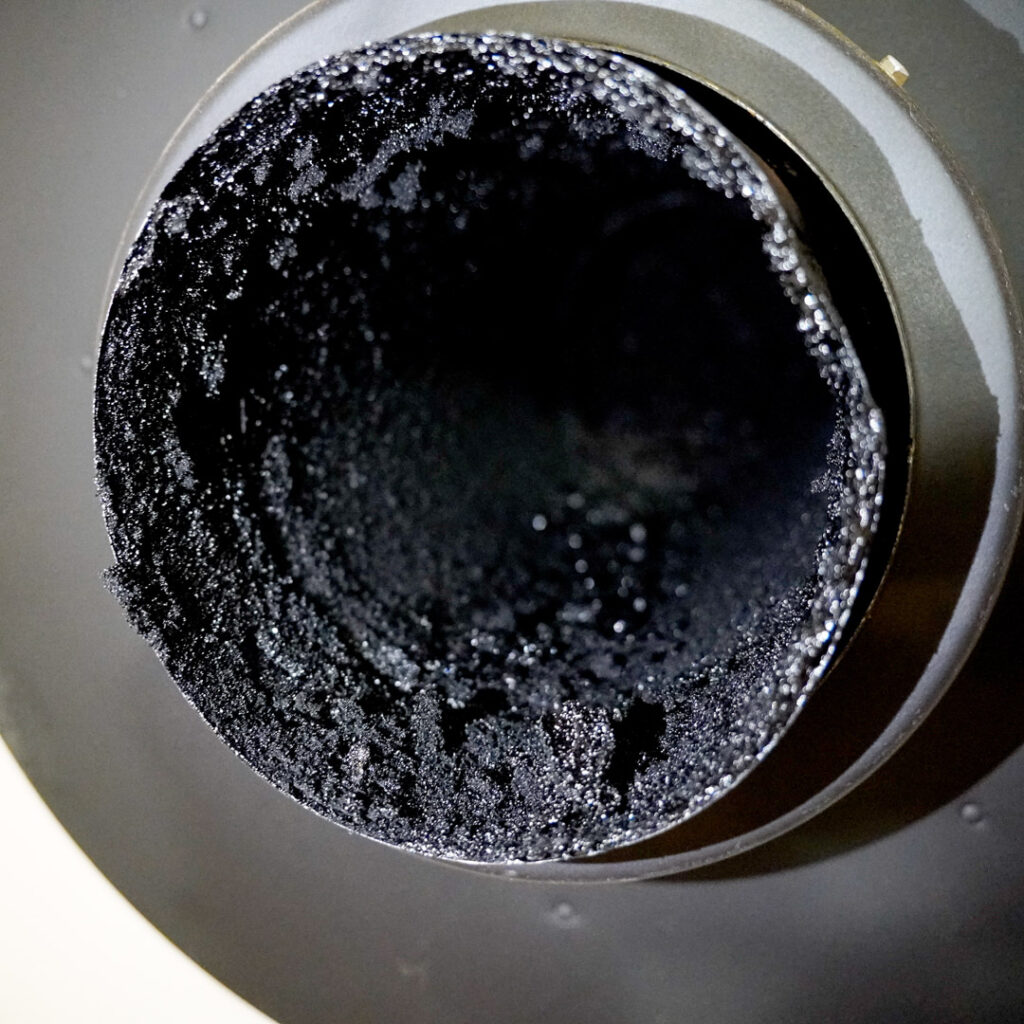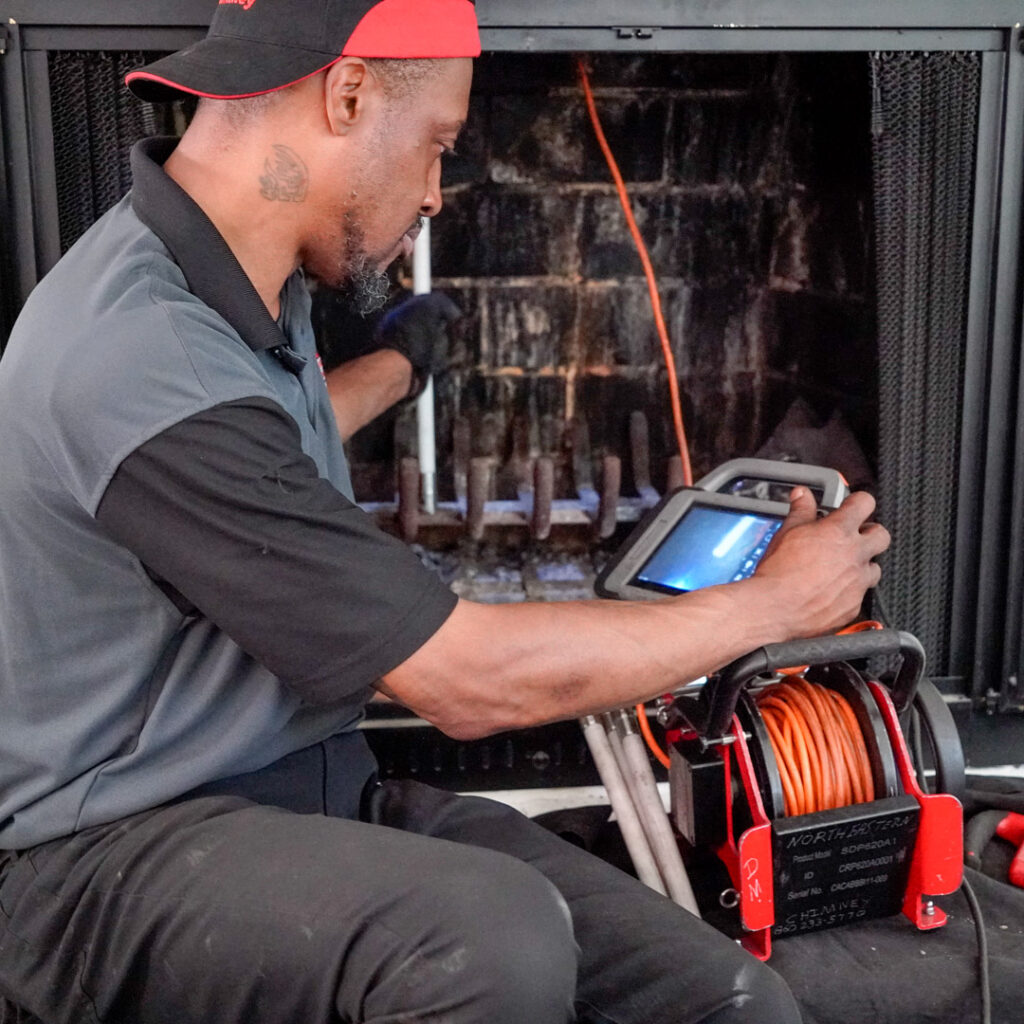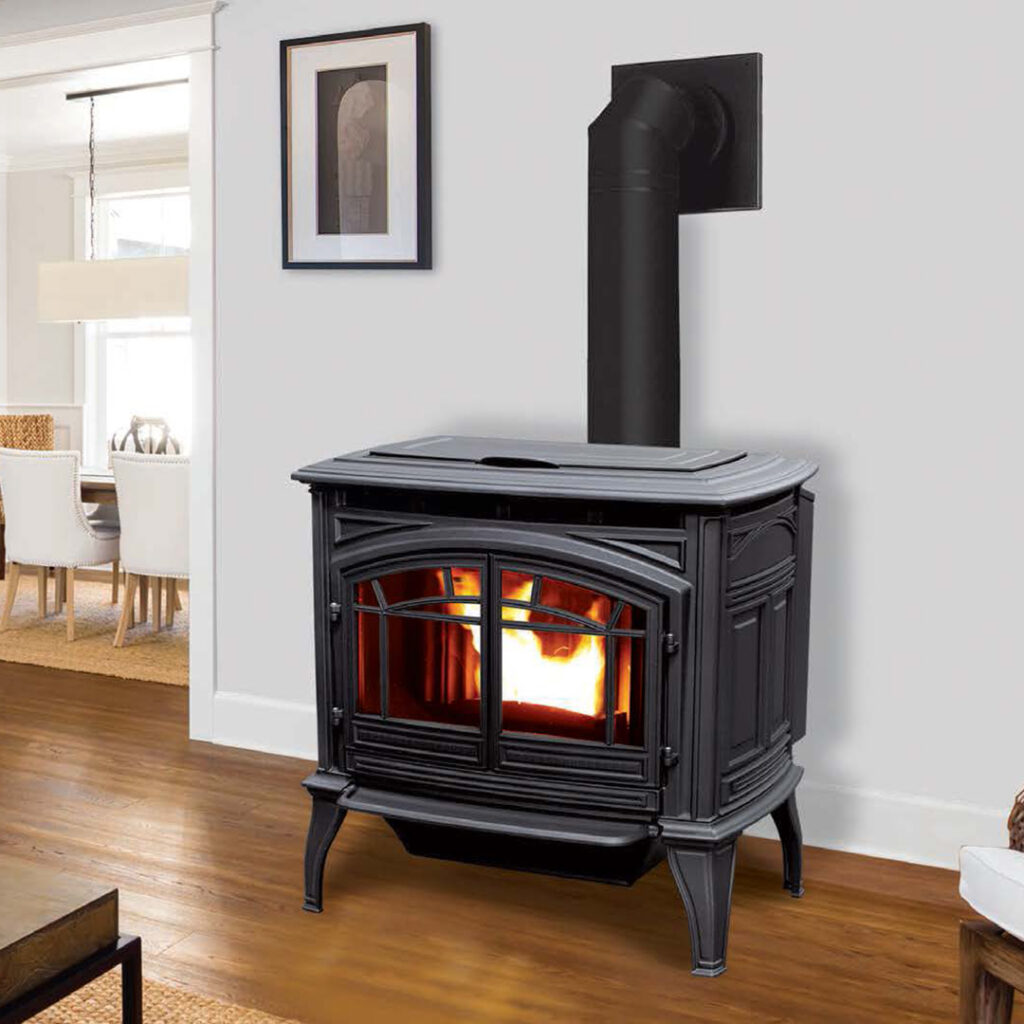As a responsible homeowner, you want your chimney to be as safe as possible, right? And it’s possible. You only need to consider these tips:
Clean the chimney regularly.
Maintaining a clean chimney is critical for optimal performance of the chimney and preventing chimney fires. One of the leading causes of chimney fires is the accumulation of creosote, a highly combustible material produced when wood is burned.
Regular chimney cleaning is necessary to eliminate this hazardous waste and maintain a safe environment in your house. You can clean the chimney yourself or hire the services of chimney cleaning services.
If you have the time and the necessary tools, here are some tips for cleaning your chimney you should follow:
Safety first: Before you begin cleaning your chimney, make sure you have the required safety equipment, such as goggles, gloves, and a dust mask. You should also wrap a drop cloth or sheet around the fireplace to catch any debris that falls during the cleaning process.
Choose the appropriate time: You should clean your chimney at the end of the heating season when the fireplace is not in use. This will give the chimney enough time to cool down before the next heating season begins.
Use the appropriate tools. A chimney brush is the most essential piece of equipment for cleaning. Choose a brush that fits the shape and size of your chimney flue. You may also require a chimney rod to guide the brush through the chimney.
Begin cleaning from the top of the chimney. Climb carefully onto the roof and locate the chimney cap. Remove the cap and use the chimney brush to remove any debris, soot, or creosote accumulation. Make sure you brush both sides of the flue thoroughly.
Clean the firebox: After cleaning the chimney from the top, make sure to clean the firebox as well. Using a tiny brush and dustpan, remove any ash or particles. You can also vacuum the firebox to clean it more thoroughly.
Dispose of debris: Once you’ve finished cleaning, make sure to properly dispose of the debris, which may still contain flammable creosote. Seal the waste in a plastic bag and dispose of it safely and appropriately.
Remember that chimney cleaning can be a nasty and potentially dangerous undertaking. If you’re hesitant or uncomfortable cleaning your chimney yourself, engage a professional chimney sweep who can ensure a complete and safe cleaning.
Inspect the chimney regularly.
Regular chimney inspections are critical to ensuring your chimney’s safety and function. While you may be meticulous in cleaning your chimney, there are hidden problems that only a professional chimney sweep can uncover, so you should hire one.
To be on the safe side, hire a chimney expert at least once a year, particularly before the colder months when you’ll be using your fireplace more often.
However, if you use your fireplace frequently or burn a lot of wood, it is best to schedule inspections more regularly, such as every six months.
A certified chimney sweep will inspect your chimney’s flue, liner, damper, crown, and cap for signs of damage, such as cracks, leaks, or deteriorating mortar.
They will also check for blockages or creosote buildup, which can lead to chimney fires. In some cases, they might use specialized tools, such as a video camera, to inspect hard-to-reach areas.
Investing in frequent chimney inspections allows you to discover and solve any possible concerns early on, saving you from costly repairs or, worse, the risk of fire. Remember that preventing problems is always preferable to dealing with them later.
Understand your chimney and how it works.
The more you know about your chimney and how it works, the better you will take care of it.
The chimney is made up of numerous main elements, each with a distinct purpose. The most important parts are:
The flue is the inner lining of the chimney that directs smoke and combustion gasses out of your home. It limits heat transfer to nearby combustible objects, thereby ensuring safety.
The damper, located slightly above the firebox, regulates airflow and avoids drafts when the fireplace is not in use. You can open or close it manually or by a mechanism, depending on the design.
The Crown: Located at the top of the chimney, the crown serves as a protective cap. It prevents water from entering the chimney structure and causing damage. An adequately maintained crown is critical to the longevity of your chimney.
The Cap: Located on top of the flue hole, the cap protects against rain, snow, debris, and even animals. It helps to prevent moisture problems, animal infestations, and obstructions.
Understanding the structure of your chimney allows you to identify and handle unique maintenance needs for each component. Recognizing the importance of these components will help you keep your chimney in good working order.
Be on the lookout for any signs of damage.
Regular maintenance and timely repairs are critical to maintaining your chimney in top condition. Recognizing chimney problems early on might assist in preventing additional deterioration and risks. Here are some frequent indicators to watch out for:
Check the exterior of your chimney for fractures or holes in the bricks or mortar. These can let water soak in and cause additional damage if you don’t fix them early enough.
Crumbling brickwork: If you observe bits of brick or masonry breaking off, it may signal underlying structural problems. It is critical to handle this immediately to avoid additional worsening.
Deteriorating mortar: Examine the mortar joints between the bricks. If you see crumbling or missing mortar, it indicates that the chimney needs to be repaired.
Water Damage: Look for water spots or discolorations on the walls or ceiling around the chimney. This could signal a leak in the chimney system that you must repair to avoid further harm.
Smoke or odor: If you smell smoke or foul aromas inside your home after using the fireplace, this could indicate a chimney obstruction or ventilation problems. You need to fix this promptly to avoid a fire hazard.
It’s crucial to note that chimney damage can increase over time if not corrected. If you see any of these indicators, you should swiftly contact a professional chimney sweep Bowie or skilled specialist for a comprehensive inspection and repairs.
The post Tricks to Ensure Your Chimney Is Safe first appeared on First Class Chimney Services.
This post first appeared on https://www.firstclasschimneyservices.com
 What Is Creosote?
What Is Creosote? Are There Any Benefits In The Production Of Creosote?
Are There Any Benefits In The Production Of Creosote?





